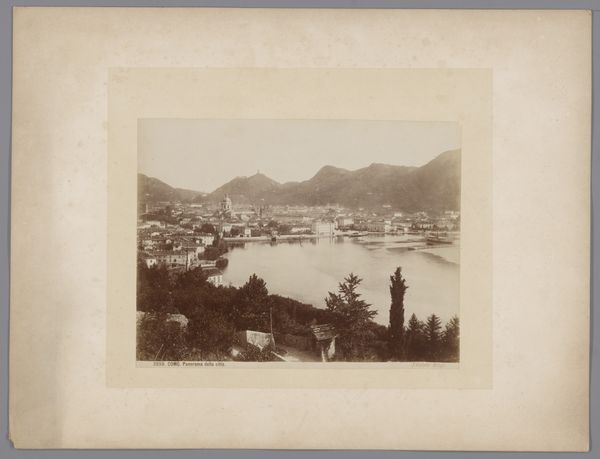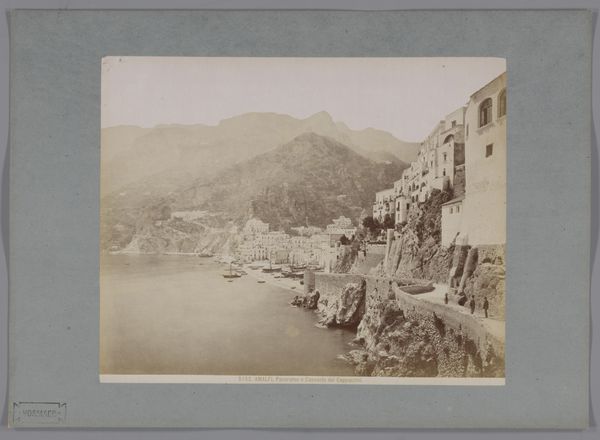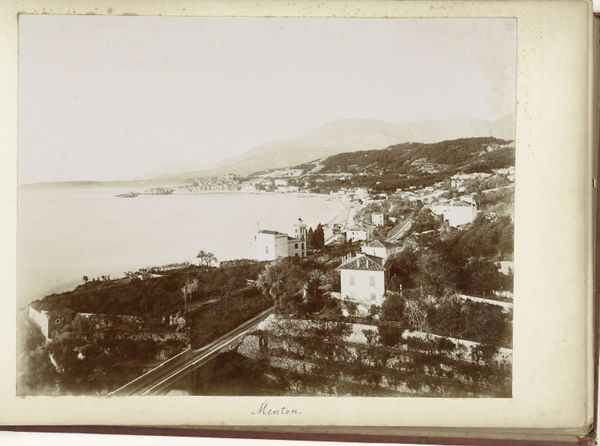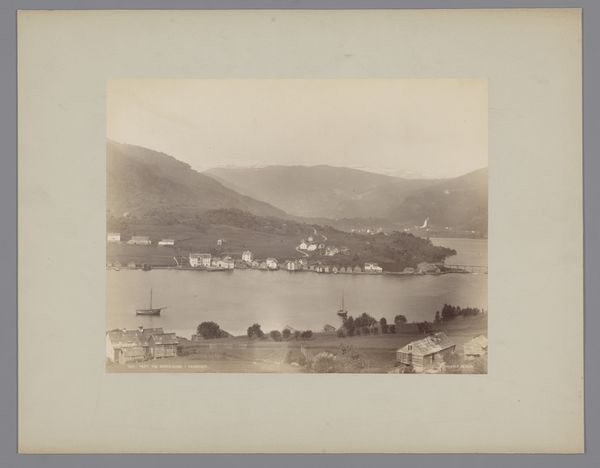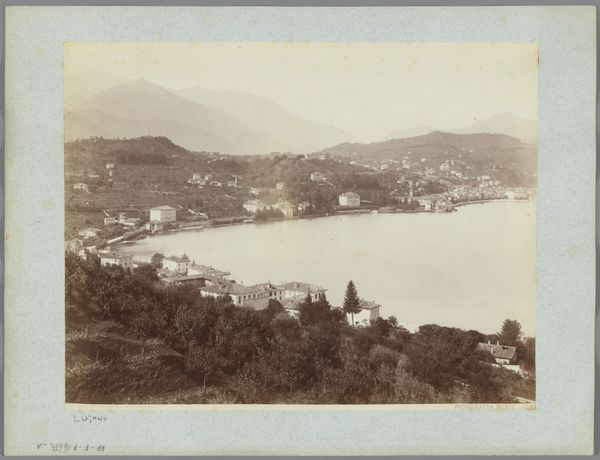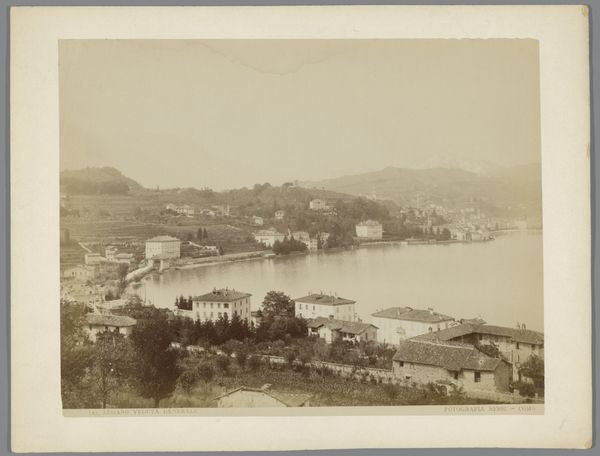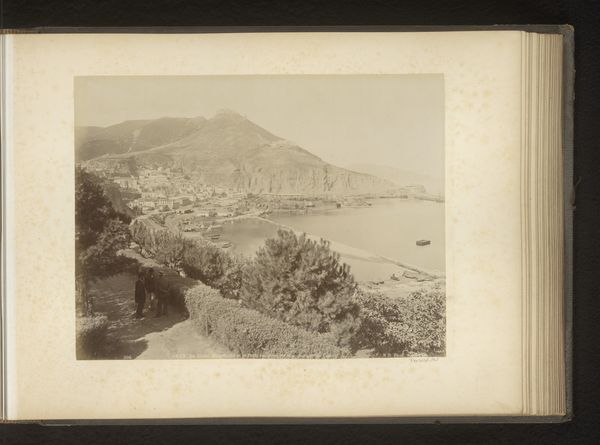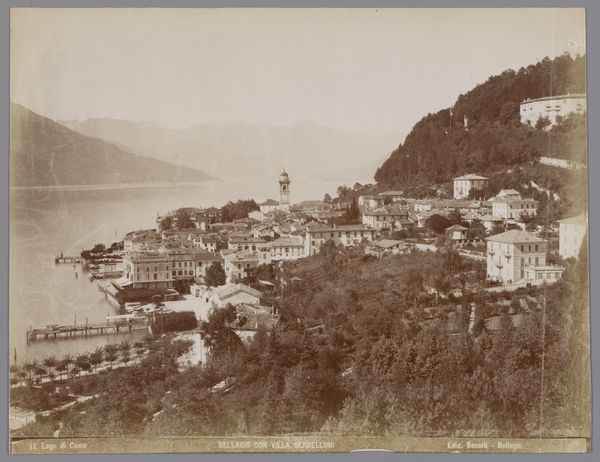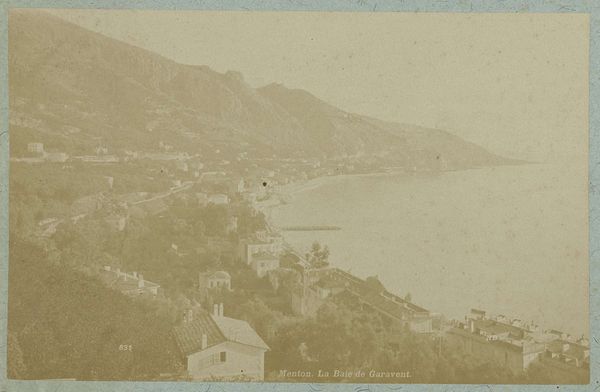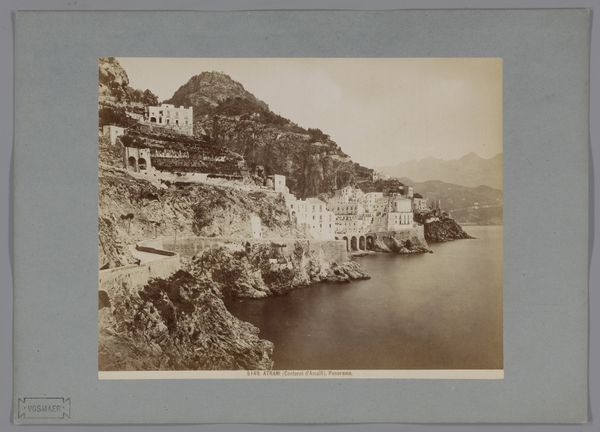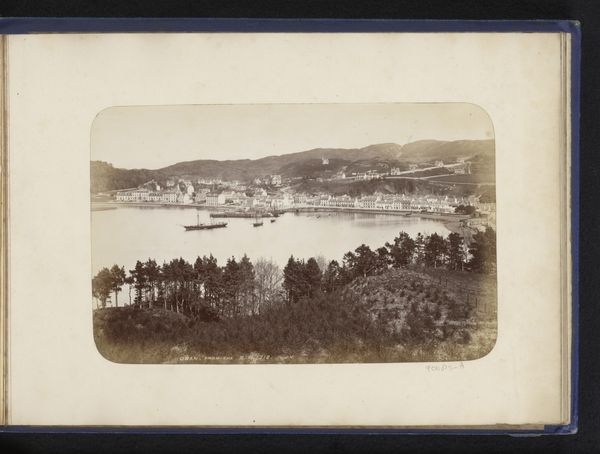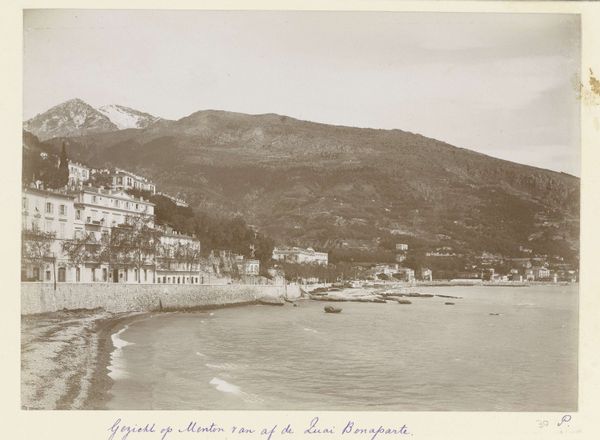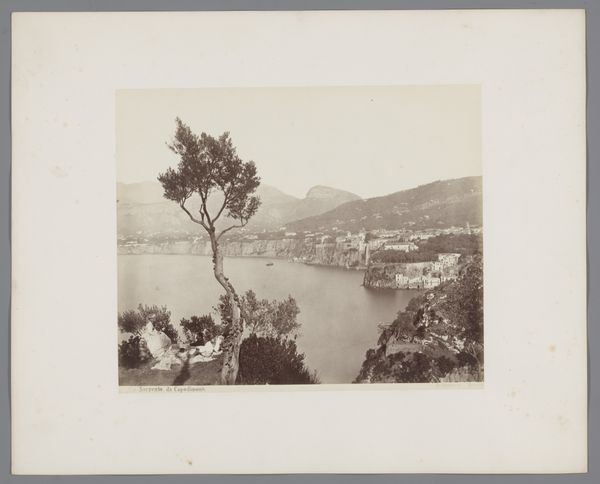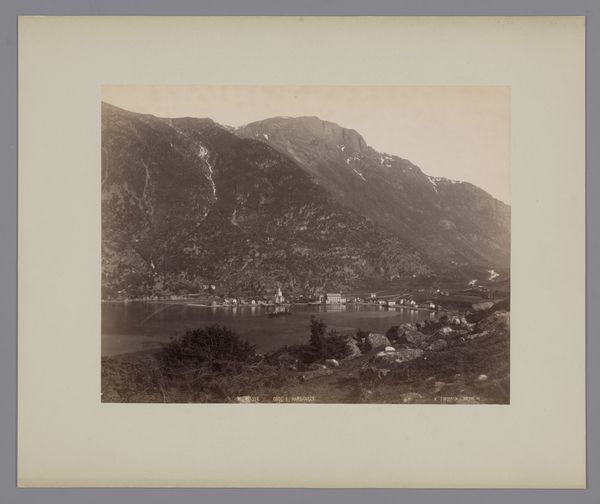
#
photo of handprinted image
#
aged paper
#
water colours
#
muted colour palette
#
ink paper printed
#
white palette
#
watercolour bleed
#
watercolour illustration
#
soft colour palette
#
watercolor
Dimensions: height 202 mm, width 253 mm, height 258 mm, width 358 mm
Copyright: Rijks Museum: Open Domain
Giacomo Brogi made this photograph of Vietri on the Gulf of Salerno in Italy, using the wet collodion process, sometime in the mid-to-late 19th century. This photographic technique, requiring a portable darkroom for on-site development, was popular among artists and commercial photographers alike, especially in documenting landscapes and architecture. In Italy, photography played a role in shaping national identity and collective memory, especially after its unification in 1861. Images like this helped define the country’s rich cultural heritage and picturesque landscapes. Brogi's work captured the essence of Italian life and scenery, contributing to a sense of national pride and attracting tourists eager to experience the beauty depicted in these photographs. The social conditions that shaped Brogi’s artistic production were deeply intertwined with Italy's economic and political transformations. By examining photographs like this, along with other documents and studies of the period, we gain insights into the complex interplay between art, society, and institutional power.
Comments
No comments
Be the first to comment and join the conversation on the ultimate creative platform.
